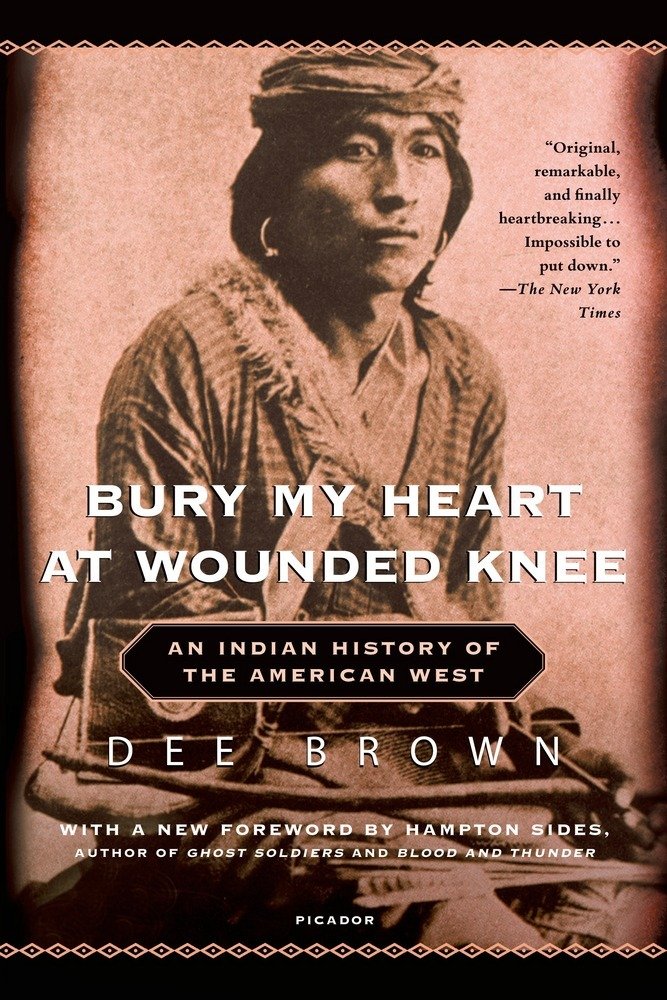Bury My Heart at Wounded Knee Book Summary
An Indian History of the American West
TL;DR
Bury My Heart at Wounded Knee is a poignant historical account detailing the systematic destruction of Native American tribes during the westward expansion of the United States, told through their own voices and experiences.
What is Bury My Heart at Wounded Knee about
Dee Brown's Bury My Heart at Wounded Knee offers a critical perspective on American history, focusing on the devastating impact of westward expansion on Native American tribes in the second half of the 19th century. The book is based on a wide array of primary sources, including council records and personal testimonies, which bring to light the struggles, battles, and betrayals faced by various tribes, including the Dakota, Ute, Sioux, and Cheyenne. With its emphasis on the voices of the Native Americans themselves, Brown’s narrative presents a stark contrast to the prevailing Eurocentric historical accounts, aiming to shift the reader's understanding of how the American West was 'won.' This edition includes a new preface that reflects on the book's enduring relevance and impact.
Bury My Heart at Wounded Knee 5 Key Takeaways
Systematic Destruction of Native Americans
The book illustrates the systematic efforts to displace Native Americans through broken treaties and violent confrontations, revealing the dark side of American expansionism.
Indigenous Voices
Brown emphasizes the importance of Native American narratives, allowing chiefs and warriors to recount their own experiences, which challenges the traditional historical perspective.
Cultural Resilience
Despite the numerous challenges and atrocities faced, the resilience and resistance of Native American cultures are highlighted throughout the narrative.
Historical Context of Conflict
The accounts provided in the book place the conflicts within a broader historical context of colonialism and imperialism, linking them to contemporary issues.
Impact of Westward Expansion
The book critically examines how westward expansion not only decimated populations but also dismantled cultures, leading to long-lasting repercussions for Native American communities.
Bury My Heart at Wounded Knee Videos
Bury My Heart at Wounded Knee Review | Books You Should Read
Top Bury My Heart at Wounded Knee Quotes
- "The only good Indian is a dead Indian."
- "Bury my heart at Wounded Knee, where the spirit of my people fell."
Who should read Bury My Heart at Wounded Knee?
This book is essential for readers interested in American history, indigenous studies, and social justice. It offers profound insights into the struggles of Native Americans and the consequences of colonization, prompting reflection on contemporary issues of race and identity.
Bury My Heart at Wounded Knee Best Reviews
- "Bury My Heart at Wounded Knee is a powerful, heartbreaking account that reshapes the way we view American history and the treatment of Native Americans." - The New York Times
- "Dee Brown's meticulous research and compelling storytelling make this book a crucial read for anyone seeking to understand the true history of the American West." - The Washington Post
People also liked these summaries
Bury My Heart at Wounded Knee FAQs
Is Bury My Heart at Wounded Knee a banned book?
No, Bury My Heart at Wounded Knee is not currently banned, although it faced a ban in a Wisconsin school district in 1974 due to its controversial content.
What is the major message of Bury My Heart at Wounded Knee?
The major message of the book is to highlight the devastating impact of American westward expansion on Native American tribes and to provide a platform for their stories.
Is Bury My Heart at Wounded Knee worth reading?
Yes, it is highly regarded for its critical perspective on American history, making it a significant read for those interested in the injustices faced by Native Americans.
